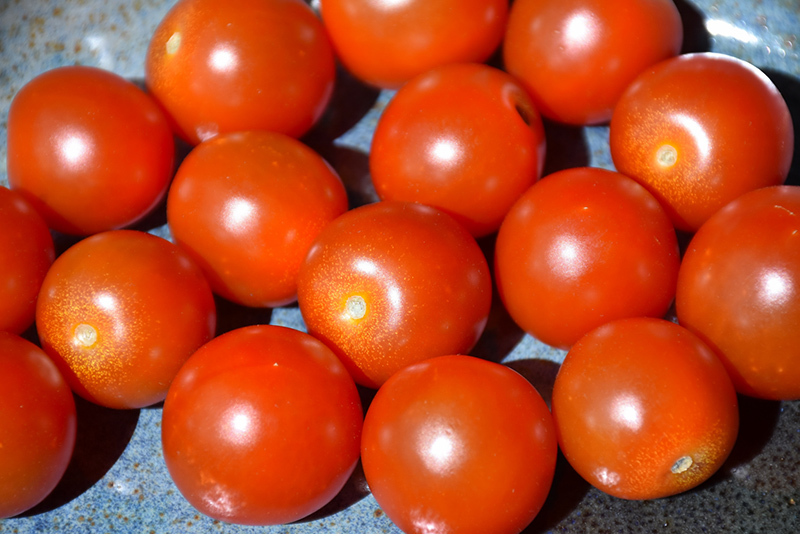Plant Finder
Sweet 100 Tomato
Solanum lycopersicum 'Sweet 100'
Height: 5 feet
Spacing: 3 feet
Sunlight:
![]()
Hardiness Zone: (annual)
Group/Class: Cherry/Grape-Indeterminate
Description:
This variety produces an ample amount of small snack sized red fruit; firm with a well balanced flavor; perfect for containers or garden; great for salads, roasting and juice; disease resistant; caging or staking is required
Edible Qualities
Sweet 100 Tomato is an annual vegetable plant that is commonly grown for its edible qualities. It produces small clusters of red round tomatoes (which are technically 'berries') with red flesh which are typically harvested when mature. The tomatoes have a sweet taste and a firm texture.
The tomatoes are most often used in the following ways:
- Fresh Eating
- Eating When Cooked/Prepared
- Cooking
- Pickling
- Canning
Planting & Growing
Sweet 100 Tomato will grow to be about 5 feet tall at maturity, with a spread of 3 feet. When planted in rows, individual plants should be spaced approximately 3 feet apart. Because of its vigorous growth habit, it may require staking or supplemental support. This fast-growing vegetable plant is an annual, which means that it will grow for one season in your garden and then die after producing a crop.
This plant can be difficult to integrate into a landscape or flower garden, and is best grown in a designated vegetable garden. It should only be grown in full sunlight. It does best in average to evenly moist conditions, but will not tolerate standing water. It is not particular as to soil pH, but grows best in rich soils. It is somewhat tolerant of urban pollution. Consider applying a thick mulch around the root zone over the growing season to conserve soil moisture. This is a selected variety of a species not originally from North America.
Sweet 100 Tomato is a good choice for the vegetable garden, but it is also well-suited for use in outdoor pots and containers. With its upright habit of growth, it is best suited for use as a 'thriller' in the 'spiller-thriller-filler' container combination; plant it near the center of the pot, surrounded by smaller plants and those that spill over the edges. It is even sizeable enough that it can be grown alone in a suitable container. Note that when growing plants in outdoor containers and baskets, they may require more frequent waterings than they would in the yard or garden.
Disclaimer - Rutgers Landscape & Nursery Plant Finder is an online resource representing many of the varieties that we carry over the course of the season, and is intended for informational purposes only. Inventory varies seasonally, so we cannot guarantee that every plant will be in stock at all times - please contact Rutgers directly for current availability.

